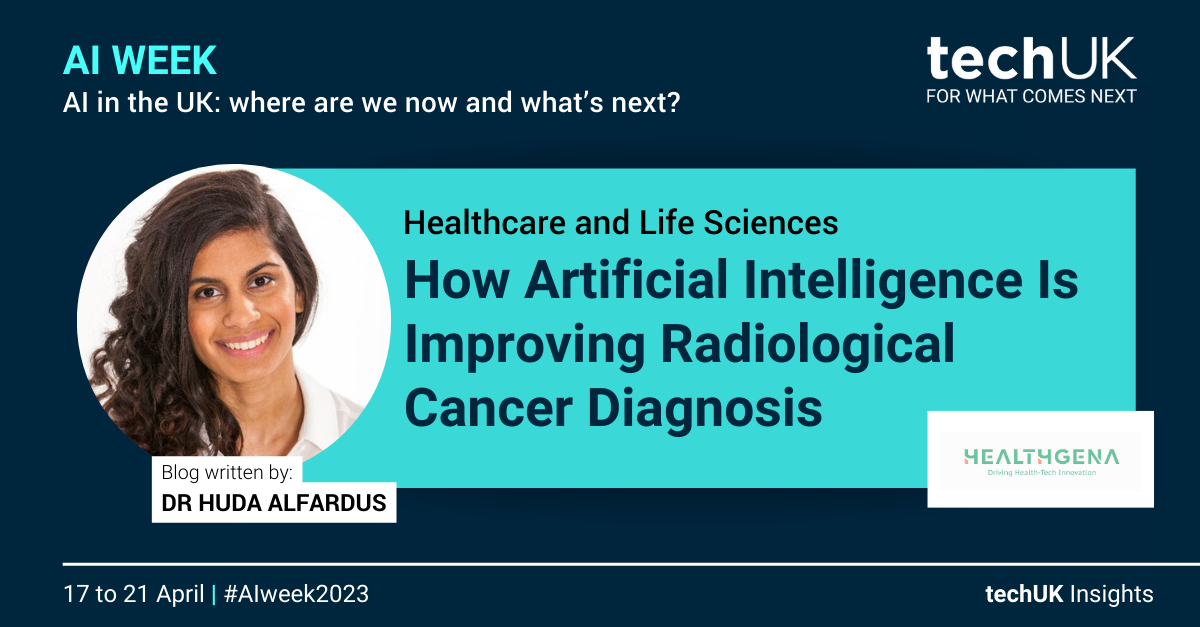How Artificial Intelligence Is Improving Radiological Cancer Diagnosis (Guest blog by HealthGena)
Artificial intelligence is delivering breakthroughs in the health industry by detecting and diagnosing health anomalies just as well as medical professionals. Reports show that AI can analyze medical data and diagnose diseases ranging from cancer, Alzheimer’s, diabetes, and heart disease. Particularly in the radiology department, AI is becoming a crucial cancer diagnostics aid with the ability to outline areas of concern that radiologists can overlook. Radiologists may spend hours analyzing difficult scans where an AI system can capture results in less time.
To what extent will AI be adopted at every hospital and clinic around the world? Well, for now there are still many developments to be made. The way AI in radiology works is through a specific software which is fed thousands to millions of patient medical data whose diagnoses are already known. The AI can then create a mathematical representation of normal versus abnormal images. When used on mammograms, x-rays, or other scans, the AI is able to highlight cancer-suspicious areas. Some areas tend to be microscopic for the human eye to detect. The earlier the potential sites of cancer are detected the faster practitioners can biopsy it and eventually treat it. AI speed is a remarkable advantage over traditional technician diagnosis. While radiology technicians can be too busy to look over scans in the moment, certain cases are time-sensitive. AI is able to flag critical cases using a system that puts these cases in high priority in the technician’s view, especially when there are thousands of images to review. However, the perfect AI cancer scanner does not yet exist. Before it is rolled out as an accessible resource, AI must first be able to produce accurate results for every type of patient and recognize rare and more complex forms of cancer and other diseases. Another issue is that AI can detect changes in the body which can show up to look like cancer and produce false-positive results. Overall, with promising developments, AI can be used as a tool in conjunction with health professionals to diagnose cancer before it spreads.
While AI may not fully replace health practitioners, it undoubtedly has its benefits at different levels of a hospital system. On a microlevel, it alerts to critical cases and highlights scan abnormalities, while at a macro level it has the ability to improve hospital workflows and optimize scheduling systems. Either way, the approach to using AI gives patients more personalized care because diagnosis is faster and more accurate. The treatment therefore, can be given based on an individualized assessment. There is a positive case for AI to be adopted by more hospitals as developments are made. With the rising cases of different disorders, and in particular more complex cases such as certain forms of cancers, AI can be a powerful support system that only enhances radiological science.

AI and Data Analytics updates
Sign-up to our monthly newsletter to get the latest updates and opportunities from our AI and Data Analytics Programme straight to your inbox.


